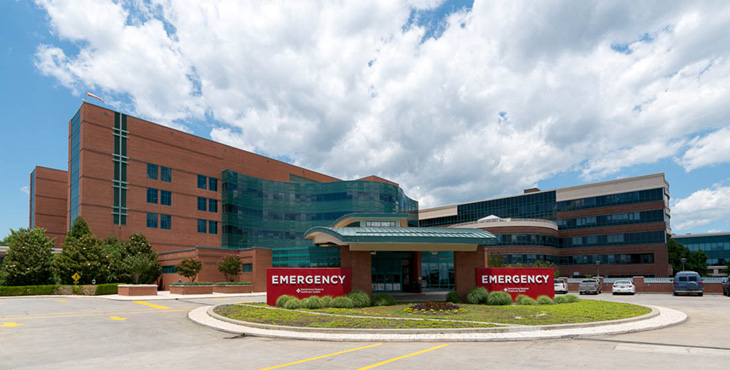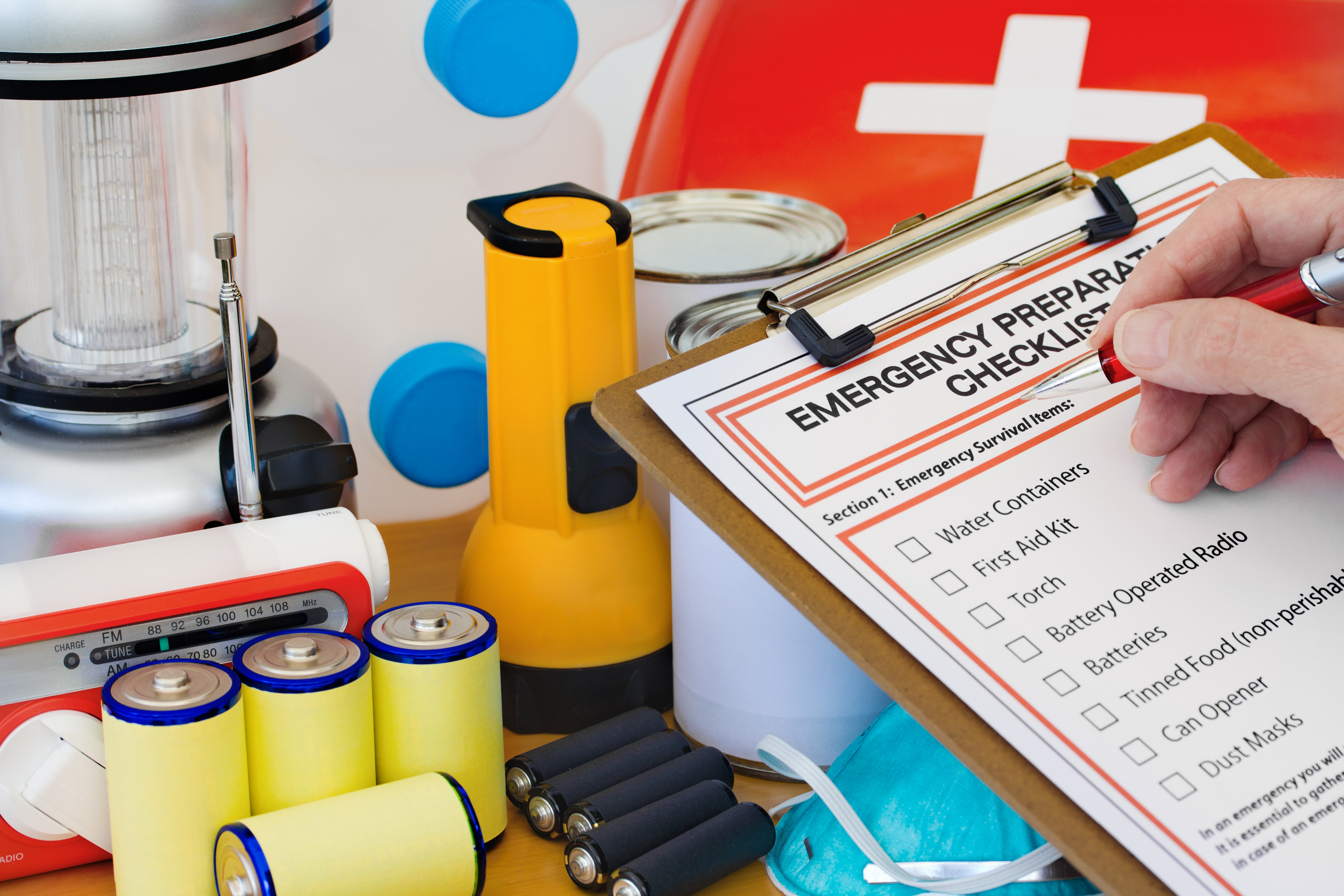Emergency Care

About
Five Locations
Spartanburg Regional Healthcare System has five emergency departments across the Upstate that bring together specialists and facilities for a range of emergencies, including sudden or severe illness, injuries and life-threatening conditions.
Our full-service emergency departments serve patients 24 hours a day 7 days a week throughout Upstate South Carolina at:
- Cherokee Medical Center
- Pelham Medical Center
- SMC – Mary Black Campus
- Spartanburg Medical Center
- Union Medical Center
Each emergency department is integrated with one of our full-service hospitals, giving them access to advanced resources, electronic medical records, and a broad range of testing and treatment facilities.
If you have an emergency, dial 911.
Specialized treatments and services:
- Accredited primary stroke centers
- Certified chest pain centers - If you, or someone you know, is experiencing early heart attack symptoms do not drive to the hospital - call 911 immediately. The ambulance team can share critical information with the hospital before your arrival.
- Emergency behavioral health
- Injury prevention education
- Level I trauma center - When you need the highest levels of emergency medical care, the trauma team of Spartanburg Regional Healthcare System is ready to respond. Spartanburg Medical Center is a Level I Trauma Center, one of only five in the state.
- Prepared for disasters - Spartanburg Medical Center is prepared to provide care after a major emergency in our region.
- Sexual assault and domestic violence
When you need treatment that is not an emergency
Visit one of our five convenient Immediate Care Centers or use SRHS Virtual Care.
Contact Us
Contact Us
Programs and Treatments
Services Offered
Injury Prevention and Outreach Programs
As Spartanburg's only Level I Trauma Center, the experts at Spartanburg Medical Center are dedicated to treating and preventing traumatic injuries.
The events which result in traumatic injury are not random or unpredictable. Injury can be prevented, and many lives saved, by learning more about the causes of injury and implementing appropriate injury prevention strategies. Many of these strategies are well-established, easily available and relatively inexpensive, such as seat belts and helmets.
To help reduce the number of traumatic injuries in our community, Spartanburg Medical Center offers a variety of free injury prevention programs. These community-based programs, take place in schools, community centers, churches and other locations, and provide participants of all ages with the knowledge and skills they need to stay safe.
Stop the Bleed
Minutes count! Someone who is severely bleeding can bleed to death in as little as five minutes. That’s why bleeding control is the purpose of STOP THE BLEED training. The 60 minute formal presentation is followed by hands-on practice to ensure that participants feel confident in their ability to STOP THE BLEED. (Group presentation)
ThinkFirst Spartanburg
Injury is the number-one cause of death for people ages 1 to 45 according to the Centers for Disease Control and Prevention. Spartanburg Regional Healthcare System is dedicated to preventing traumatic injuries and keeping young people safe.
The mission of ThinkFirst Spartanburg, a chapter of the ThinkFirst National Injury Prevention Foundation, is to prevent brain, spinal cord and other traumatic injuries through education, research and advocacy. These presentations are geared toward different age groups, from first graders through high school students, and are commonly given in classrooms, activity centers or during after-school programs.
The hour-long ThinkFirst program consist of three parts:
- Students watch a video of testimonies from survivors of brain and spinal cord injuries.
- A medical professional explains the anatomy of the brain and spinal cord, the causes of injury, the effects of these injuries and how to prevent them.
- A local traumatic injury survivor will share their story as a Voice of Injury Prevention (VIP), explaining how their injury happened, and how it has changed their life.
After a ThinkFirst presentation, students should better understand how important it is to think first before making a decision that could lead to injury. (Group presentation)
Stay Active & Independent for Life (SAIL)
Falls in people ages 65 and older are among the most common injuries in our region. These falls can cause severe injuries, including complex bone fractures and brain bleeding. After falls, many seniors cannot continue to live an independent lifestyle.
The Stay Active & Independent for Life (SAIL) program uses an evidence-based approach toward preventing falls in older adults. This free fall prevention program includes a one-hour, twice-per-week group fitness class where all participants work at their own pace. Participants complete aerobic, strengthening, balance and flexibility exercises that help prevent falls and track their progress with baseline fitness tests. Participants also take home a workbook full of tips and information for creating a safer home environment. (Recurring class)
Any person over the age of 50, including those that use walkers or canes, can participate in the SAIL program. Participants can attend any class at any time, and should wear layered clothing and bring water. Always check with your doctor first to confirm that exercise is safe for you.
Senior Lifestyles & Injury Prevention (SLIP)
In addition to the SAIL program, we offer Senior Lifestyles & Injury Prevention (SLIP) presentations. This free program, presented by the Trauma Injury Prevention & Outreach Coordinator, lasts between 20 minutes and an hour. The presentation can be at any community location and covers a wide range of fall prevention topics, including:
- How to create a safer home environment
- Lifestyle modifications
- Examples of exercises that can reduce the risk of falls
- Importance of routine yearly checkups with your family doctor and an eye doctor
At the end of the presentation, each participant receives a Fall Prevention Packet that includes tips on how to prevent falls at home, make decisions that reduce the risk of falls and other valuable information. (Group presentation)
Matter of Balance (MOB)
Many older adults experience a debilitating fear of falling. People who develop this fear often limit their activities, which can result in physical weakness, making the risk of falling even greater. The Matter of Balance program is designed to conquer the fear of falling through cognitive restructuring in order to increase activity levels among older adults. This is a two-hour group class that meets once a week for 8 weeks. (Recurring class)
For more information, or to schedule any of these programs, please call the Trauma Injury Prevention & Outreach Coordinator at 864-560-7155.













